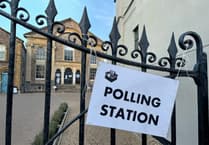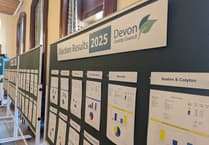AS we enter 2025, we can look ahead to what the year may have in store.
Since the general election in July, the outlook has darkened for our economy. I fear the new government has set us on a path to lower growth, fewer jobs and greater challenges for households and businesses.
After a tough few years of cost-of-living pressures from global inflation caused by the war in Ukraine and the aftermath of the pandemic, by the time the Conservative government left office in the summer we were on what was an encouraging trajectory, with inflation back down to 2 per cent and the UK economy growing faster than any other country in the G7.
Since then growth has vanished, with the latest quarterly figure showing it flatlining and the latest monthly figure actually showing the economy shrinking slightly.
Meanwhile, inflation has edged up again to 2.6 per cent.
One of the reasons for this is clearly the approach the new Labour government has taken, both in terms of their actual policy decisions and the narrative they have chosen to pursue.
They made a political choice to come into power and spin a story of a “dire inheritance” on the economy and a purported “black hole” in the public finances which would require tough decisions and tax rises.
Even before Rachel Reeves delivered her Budget, which pushed through the biggest tax rises in a generation, investors, companies and households could see the economy being talked down and may have started to think twice before choosing to spend, invest or recruit.
The mood music can have a significant impact on an economy. John Maynard Keynes called this the “animal spirits” which influence business and consumer confidence. And don’t just take my word for it – Andy Haldane, the former Chief Economist at the Bank of England, said that Labour’s spin had “generated a fear and foreboding and uncertainty among consumers, among businesses, among investors”.
All of this means we are going into the new year with an economy at risk of stagnation. And of course the major tax rises announced in the Budget have not yet even come into force.
The increase in employer’s National Insurance will come in from April.
This policy, a direct break with the promises made by Labour during the election, will be a triple whammy.
It will make it much more expensive to hire staff, damaging job creation. It will mean employers have less money for pay rises, damaging household incomes. And it will mean companies have to increase prices to cover higher staff costs, as some already have in direct response to the tax rise, meaning costs are passed on to struggling families.
Fewer jobs, lower wages, higher prices.
This is happening against an uncertain global backdrop, including conflicts and potential changes in US trade policy.
We need to be building a stronger, more dynamic economy to weather the challenges and seize the opportunities.
At the moment, the government seems to be taking us in the opposite direction.
Mel Stride





Comments
This article has no comments yet. Be the first to leave a comment.